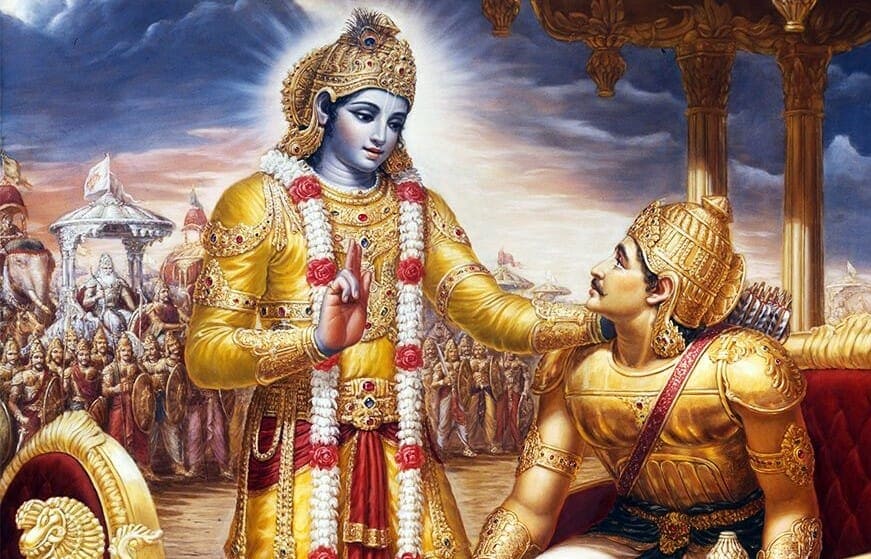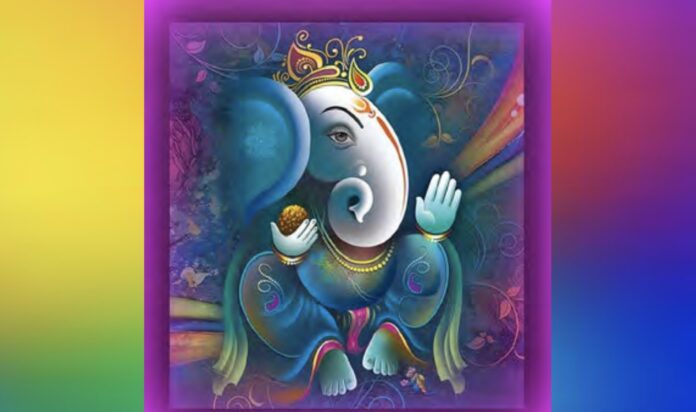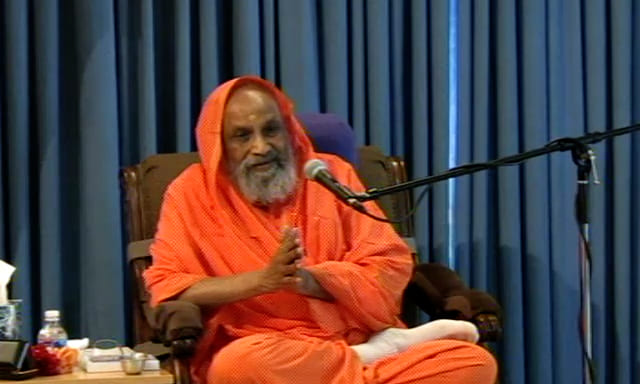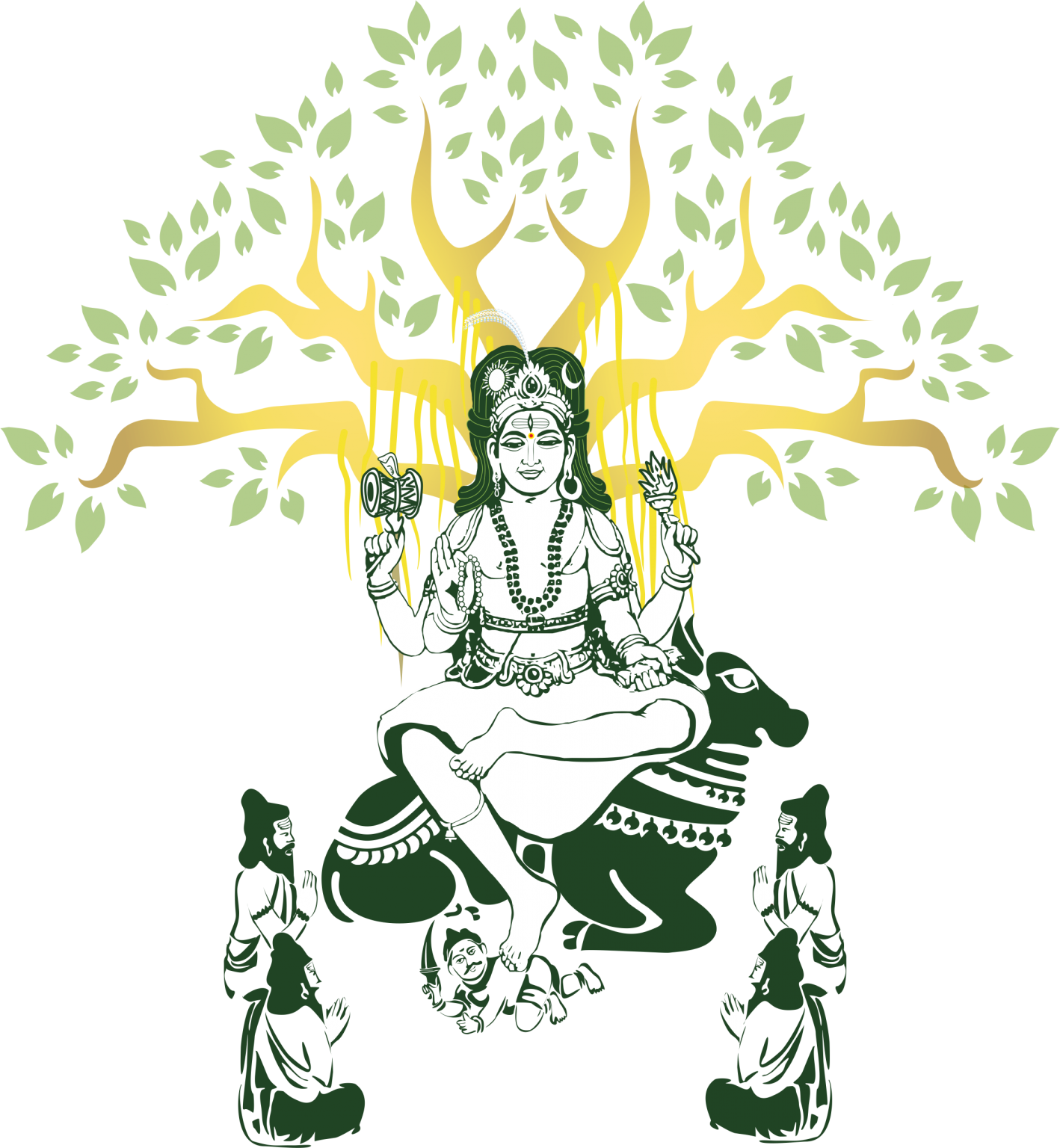Satsang with Swami Dayananda Saraswati
From “Selected Satsangs with Swami Dayananda” as published in Arsha Vidya Gurukulam 3rd anniversary souvenir, 1989.
Question:
Swamiji, how does one know that it is Vedanta that one should commit oneself to and study? How does one know that it is the answer? In other words, how does one know the truth without actually knowing it”.
Answer:
Knowing that Vedanta is the correct pursuit is very difficult. For one thing, there are so many alternatives available in the sense that a lot of people claim to have various techniques, methods, and paths to reach the truth. Therefore, to say, “This one is the right one,” is very difficult. Vedanta, however, is different from everything else in that it says, “you are the whole.
You are the problem and you are the solution. There is no problem, in fact”. “You are the problem” is only because you do not understand. All that you require to be free is to know yourself. Vedanta says that you are already free. It does not condemn you and call you a sinner. It says, “You are a free person; you are totally free. In fact, you are the only person and everything else is centered on you”. Since you are the whole creation, you are essentially identical with the Lord.
Vedanta, then, has a vision to unfold. It does not promise anything. It does not promise liberation or salvation. It says only that “You are the solution”. This means that you do not need to do anything to become free because you are already free. The very fact that you are struggling, choosing, and searching in order to become free indicates that you have committed an error about yourself. No other tradition tells you this. They say only that you will be saved if you follow this or that. Vedanta does not say this. It says you are already saved and you do not know it. Because Vedanta does not promise anything, it cannot be challenged or dismissed. Something can be dismissed only if it makes itself available for your choice. For example, if there are two products, you can dismiss one and choose the other. If Vedanta promised something, like a cure, something else could present itself as a cure, too. Then you could choose between the two, depending on your preferences. One may be cheaper, sweeter, or be packaged more attractively. Or you may choose the more costly of the two, thinking that it will be more effective. If Vedanta held out a promise of some kind, the possibility of choice would always be there.
But Vedanta holds out no promises and thus allows you no choice. It says that you are free. What choice is there here? “You are free! You are the whole!” Who or what is going to better that? Any other tradition that says, “You are the whole”, is also Vedanta, regardless of what it may be called. Vedanta need not be in Sanskrit. It can be in Latin, Greek, English, French or German. It can be in an ancient book or a new book. It need not be taught by an Indian, either. The only difference here is that to unfold the message known as Vedanta, a particular method of teaching has evolved.
To unfold the fact, “You are the whole”, the teacher must have some method. The teaching reveals, “You are the whole”, and there is a particular method of unfolding this revelation for your recognition that no one else may have. Whatever reveals this fact is Vedanta. To look at Vedanta as something Indian, creates problems; whereas, if you look at it, as a body of knowledge that is maintained in India, there is no problem.
In fact, like the pyramids, Vedanta is too ancient for any geographical limitations to be placed on it. If the Egyptian government decided to remove one of the pyramids and erect a housing complex in its place, using all of its stone, humanity would raise a great hue and cry. It would not allow such a thing to happen. The pyramids do not belong to Egypt; they just happen to be in Egypt. The Egyptian people are only trustees. They cannot claim ownership because the pyramids are too ancient to belong to any country or group of people.
Once a certain point of time has been reached, the pyramids of Egypt, the redwoods of California, and the Vedanta of India become the property of humanity. Certain old buildings become monuments in the same way. Society will not let them be torn down to be replaced by high-rises, no matter what the circumstances. Why? Because they are ancient. A building may only be a hundred years old, but to some people, it is ancient, it no longer belongs to the owner; he or she has no say about it. Even if it belongs to the state, the state cannot do anything about it either.
Vedanta is the most ancient body of knowledge available to humanity today. It is a living tradition that has flowed down from generation to generation. The Veda happens to be in India, but its knowledge belongs to no one group of people. Even if the Indian people were to disown the Veda, it would not be lost. The Vedic recitation would be lost, but the wisdom that is Vedanta would prevail.
This wisdom will always be with humanity because it has already become part of humanity’s store of knowledge. It has entered the minds of people in so many different ways—through literature, for example—and can never be destroyed.




